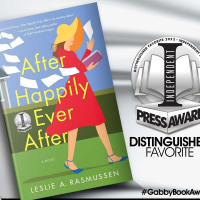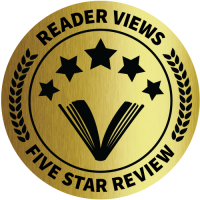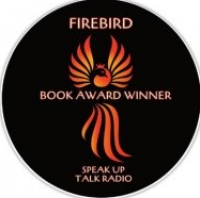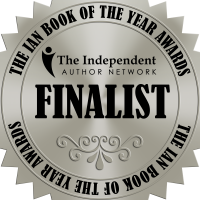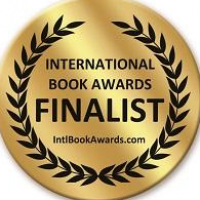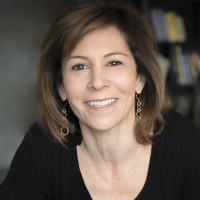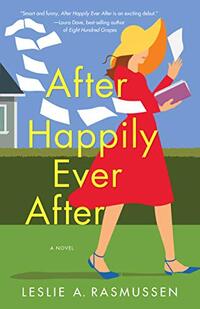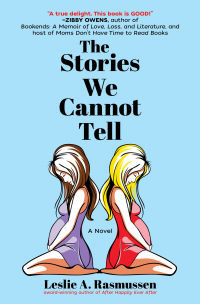Where were you born, and what was your childhood like?
I was born and raised in Los Angeles. I had two sisters and my mom was a substitute teacher, then went back to school and became a Marriage, Family, Child Therapist, and my father was an executive in advertising at Nissan. I had a happy childhood. I had a lot of friends in the area, and we would play outside until it got dark. My parents also loved culture and they’d take us to museums and theater and movies all the time. I also had grandparents and great grandparents that we saw often and had big family dinners on Sunday nights.
What was your biggest dream as a child? Did it ever come true?
My biggest dream as a child was to be an actress. Between the ages of eighteen and twenty-one, I acted in commercials, some educational videos, and a movie. When I turned twenty-one, I decided that I didn’t like all the rejection that actors have to go through, but I knew I wanted to do something on a studio lot, I just wasn’t sure what. I began my career as an assistant on various television shows, and then met a woman who took me under her wing, helped me get a literary agent, and helped me get a script on the show she was working on. After I wrote the script, I quit my job and began to write for television sitcoms. Driving on to a movie lot every day was my dream come true.
Were you a big reader as a kid too? If so, what were some of your favorite books then?
I was a huge reader as a kid. I loved all the Judy Blume books, especially Tales of a Fourth Grade Nothing, Otherwise Known As Sheila The Great, and The Superfudge books. As I got older, I continued with her books, such as Are You There God, It’s Me Margaret, and I’ve also read all of her adult books, too. As a kid I also read Nancy Drew, but my all-time favorite book was The Mixed-Up Files of Mrs. Basil E. Frankweiler.
What encouraged you to earn a master’s degree in nutrition?
After my children were born, I decided to stop writing television and stay home to raise them until they started school. When my youngest entered kindergarten, I wanted to find some kind of work where I could still be home when they got home. My television sitcom job had terrible hours, so I knew I couldn’t go back to doing that. I thought about what I was good at in my life and eating healthy was something I knew a lot about. I decided to go back to school and earn a master’s degree in nutrition. While I was in school, I was interning with a nutritionist at his office, and after I finished my program, I opened my own business, “Good Life Nutrition,” and I worked as a nutritionist for ten years. I closed the business when I decided I wanted to go back to my real passion which was writing, and I began the process of writing my first novel.
How long have you been a member of Writers’ Guild of America, West?
I’ve been a member of the WGA west, since 1991.
What is the hardest part about writing comedies?
I think the hardest part of writing comedy is to make sure there is the right amount of humor without going overboard. I don’t like when a show has an overabundance of jokes on each page. I think an audience needs time to breathe between laughs but finding the right balance between jokes and the story or issues you are trying to get across, is not easy. Some shows do it expertly, while other shows don’t. I also think sometimes writers go for the easy joke, because it’s much harder to take the time to find a smarter joke.
Do you enjoy writing essays for Huffington Post?
I love writing personal essays for Huffington Post. I have written over twenty humorous ones about my husband, my children, my parents, nutrition and even menopause. Writing personal essays is a different format than screenplays or books, so I taught myself through trial and error, what Huffington Post would print. I enjoy writing humorous essays that people can relate to and hopefully see their own families in what my family has gone through.
What inspired the plot of your debut novel, After Happily Ever After?
When I was raising my kids, I had a lot of female friends that were raising their kids at the same time as they were dealing with their aging parents. Many of them also felt like they’d lost their identities and wanted to rediscover who they were and what they wanted to do going forward. Originally, I thought about writing a nonfiction book, so I created a survey and put it online and asked women to fill it out anonymously. The survey had many questions about the women’s relationships with their partner/spouse, and how they dealt with conflict, money, sex, and romance in their relationships. When I started reading the surveys that came in, I noticed so many similarities in the women that answered the questions. Since my background is in fiction, I decided to create a story with a main character, who would be dealing with similar issues as the women I surveyed.
Your thoughts on conventional vs. self-publishing? What route did you choose and why?
Self-publishing is a great way to go to get your book in the public’s eye and not have a gatekeeper to tell you what your cover would be, or how your book would look. With self-publishing, you also get to keep the money you earn from selling books without having to give a percentage to the publisher. That seemed like a huge plus. I chose not to go that way, though. I didn’t want to deal with figuring out who would design my cover, and how to turn my word document into something that looked like every other novel in the marketplace. It was also important to me to have traditional distribution. I wanted to see my book in as many bookstores that would carry it, and also in libraries, and I knew that if I self-published my novel, the road would be much harder to achieve those things.
What is your writing kryptonite? Inversely, what is something that never fails to inspire you?
My writing kryptonite would be that I am a perfectionist, which means I could rewrite a scene or a chapter many times, but I know if I did that my novel would never get finished. At a certain point, I have to accept that I’ve done a good job. Something that never fails to inspire me is other writers’ books. I love to read how other authors figure out what point of view serves their book, how they use time in their story, and how they describe their settings to make the reader feel like they are actually there. I find many books that inspire me, in fact, there’s so many books I wish I had written, but the best part is they teach me so much.
What do you do when you get an idea for a book? Do you write it out immediately, or do you wait for it to incubate in your head for a while?
When I get an idea, I like to let it germinate for a little while, until I start to see my protagonists come to life in my imagination. After that happens, I start to write down ideas for scenes and chapters whenever they come to me, even if they are completely out of order. I also try to figure out the beginning and the end of the book, because that tells me where to start and where I will be going. When I feel like I know the basic story arc, then I begin to write the outline.
Who is the most supportive person in your life when it comes to your writing?
There are two people in my life that are the most supportive, although there’s been many supportive people over the years. My husband is also a writer, so he is always there to bounce ideas off, and he also edited the first draft of my novel for grammatical and punctuation errors. My mother has also been incredibly supportive. Since my novel was published, she has kept it on her coffee table, so people who come over will see it. She also tells everyone she meets about it, and gives out bookmarks of my book in every group and organization she’s involved in.
What is the best age to write your first book?
I don’t think there is a best age to write your first book. Some people start young, which is great, but most of the authors I know, have had full lives and careers before they wrote their first book. I think that having life experience can be extremely helpful if you are writing about relationships or issues that an older person might have, but many genres could be written by a young person also. I think any age to write a book is fantastic, just completing the task, which is not easy, is a big accomplishment.
What book ideas are you currently working on?
I’m getting close to finishing my second book now. It’s about two women in their thirties from quite different backgrounds who meet in a support group when they both suffer a tragedy and have to make a life-changing decision. We follow them both apart and together as they support each other and find a strong bond and discover that they have more in common than they ever could’ve imagined.
How long on an average does it take you to promote a book? How has been your experience working with AllAuthor?
A book promotion starts a few months before the book comes out and goes on for at least a year, but much longer if you want to keep the book in the eyes of readers. Depending on your financial situation and whether you have another book to promote, you could run ads or social media posts for years. My experience working with AllAuthor has been wonderful. AllAuthor has tweeted my book and sent me mockups and helped keep the name of my book out in the public eye, which has been fantastic. I feel like they really care about helping authors get their message across.
